Who’s in charge in today’s wars?
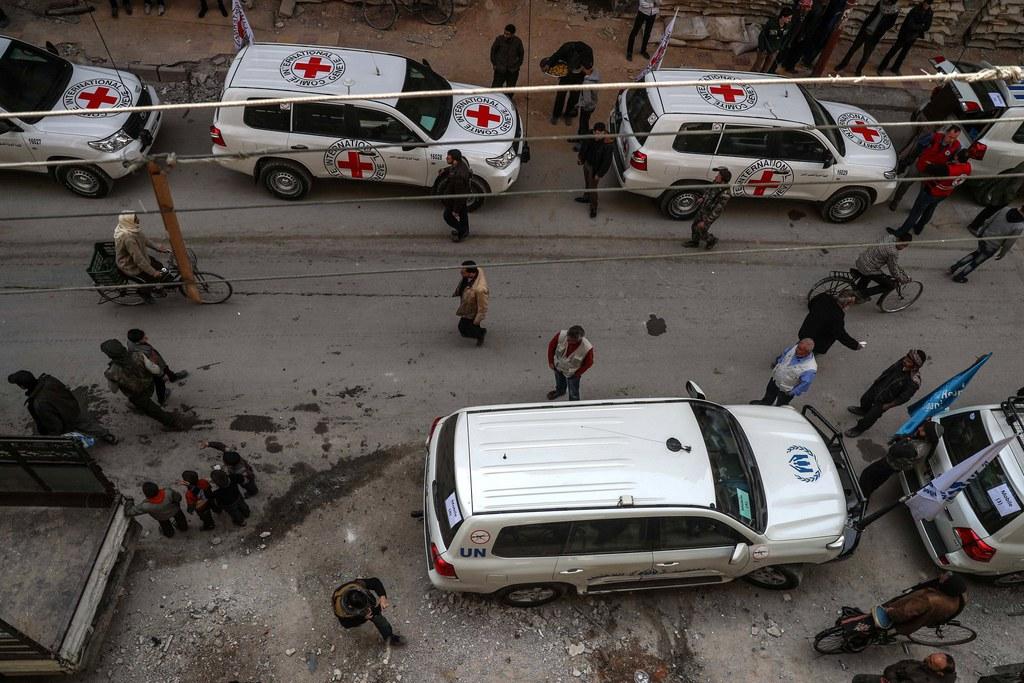
In Monty Python’s famous film, The Life of Brian, there’s a scene in which the players argue amongst themselves about various revolutionary groups: the Judean People’s Front, the People’s Front of Judea, the Judean Popular People’s Front, all of them fighting the Romans, but each of them apparently angrier with each other than with the Romans themselves.
It’s a funny scene, and one anyone who has spent any time in student politics will recognize. I’m afraid I recalled it again last week when the latest United Nations report on war crimes in SyriaExternal link was published.
I do not wish to undermine in any way the horrific nature of Syria’s long conflict.
But the report’s analysis of the different groups present in one town (Douma) – Jaysh al-Islam, Ahrar al-Sham, Faylaq ar-Rahman, Hay’at Tahrir al-Sham -, did remind me of that Judean People’s Front moment.
These groups are sometimes allied with each other, sometimes not. They are all fighting the Syrian government, whose forces, UN investigators conclude, have committed multiple war crimes and crimes against humanity.
So too have these groups: the latest report describes how “armed groups…regularly arbitrarily arrested and tortured civilians in Douma, including members of religious minority groups, repeatedly committing the war crimes of cruel treatment and torture, and outrages upon personal dignity.”
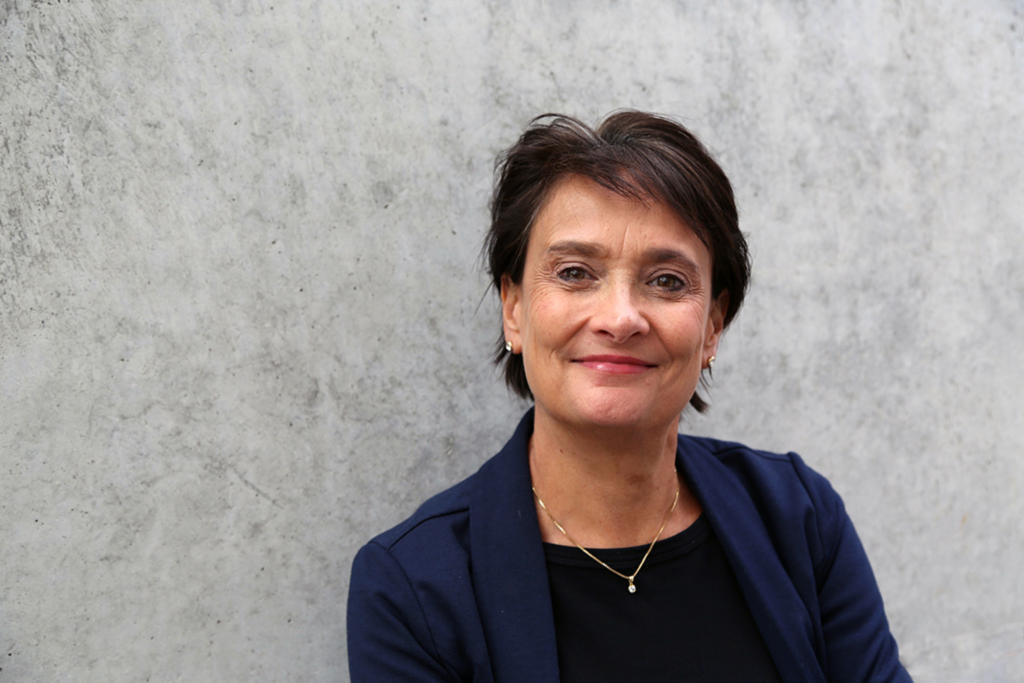
Fragmented Conflicts
The rise of these ‘non-state’ armed groups is a topic which has occupied the International Committee of the Red CrossExternal link (ICRC) for some time now.
The more a conflict becomes fragmented, with different groups, often with shifting alliances, entering the fray, the harder it becomes for the ICRC to fulfill one of its most important roles: talking to the warring parties and urging respect for the rules of war.
“We have seen more armed groups emerge in the last seven years than in the last seven decades,” says Brian McQuinn, who is now an adviser on non-state armed groups at the ICRC.
Brian should know, he did his doctoral research in Libya, spending a good part of 2011 researching armed groups, the way they identified themselves, and the way they worked together.
“Just your everyday PhD project,” he jokes. By the end of the war in Libya in October 2011, there were 236 armed groups in Misrata alone. In Syria, the Carter Centre has counted more than 1,000 groups fighting.
Finding Restraint
In a bid to understand these shifting dynamics of conflict, and to find ways of reaching and understanding the different warring groups, the ICRC has carried out a study, The Roots of Restraint in War.
A first challenge, McQuinn points out, is that many of the new armed groups have no recognizable hierarchy.
The traditional entry points that the ICRC uses with national armed forces to discuss the rules of war do not exist.” There is no vertical command and control, and no training courses,” says McQuinn.
These new groups are not even organized along the lines of some of the rebel forces of the 1970’s and 80’s, like Peru’s Shining Path or Colombia’s FARC, both of which had clear hierarchies, and identifiable leaders.
Forget finding the person in charge to discuss the Geneva Conventions. Such a lack of structure means simply delivering humanitarian supplies becomes a hugely complex operation.
“To go ten miles we have to negotiate with dozens of people,” explains McQuinn. “There is competition between small groups, one may do something different from another.”
Interesting patterns
Nevertheless, the ICRC study, which looked at military groups from the formal armies of Australia and the Philippines, to the FARC in Colombia, to Islamist groups in the Sahel, or South Sudanese armed cattle keepers, did show some interesting patterns.
For a start, suggests Brian McQuinn, the standard interpretation, regularly repeated by the media, that non-state armed groups show no restraint on the battlefield is incorrect.
“In these groups we hear a lot about chaos and unrestrained violence,” he says. “One of the big findings that comes out is that the way a group is organized gives clues as to the sources of restraint acting on a group.”
McQuinn cites an example in South Sudan, in which one particular town was attacked, and razed to the ground, in what McQuinn describes as “a very ugly affair.”
But closer examination revealed the armed group responsible had passed through two other towns beforehand and hadn’t touched a thing. Why?
The first two towns, McQuinn explains, turned out to be connected “to some very powerful people, each had local leaders with connections.”
In the end, the third unfortunate town was “a strategic choice.”
Understanding where the influence lies
Understanding who might have influence on an armed group is a first step towards finding a way to encourage restraint, or at least to talk about it.
But the sources of influence can be very different, from local religious leaders, to community businesses, or local providers of social and welfare services.
The more decentralized a group is, the more sources of influence it is likely to have, so finding the right channel will clearly be more complicated than the traditional approach to traditional armed forces, where the officer in charge is easily identifiable.
The ICRC knows it will have to invest more time researching the different groups in today’s conflicts, analyzing their structures, and their cultural and political contexts, and the study provides important lessons on how to do so.
Dialogue must not be criminalized
But the study also has a warning: talking to warring groups must not be criminalized.
Some anti-terror legislation has alarmed the humanitarian community, in that laws prohibiting support for terror groups could be interpreted to mean that talking to them (about possibly aid deliveries), or offering them advice (about the rules of war) should also be prohibited.
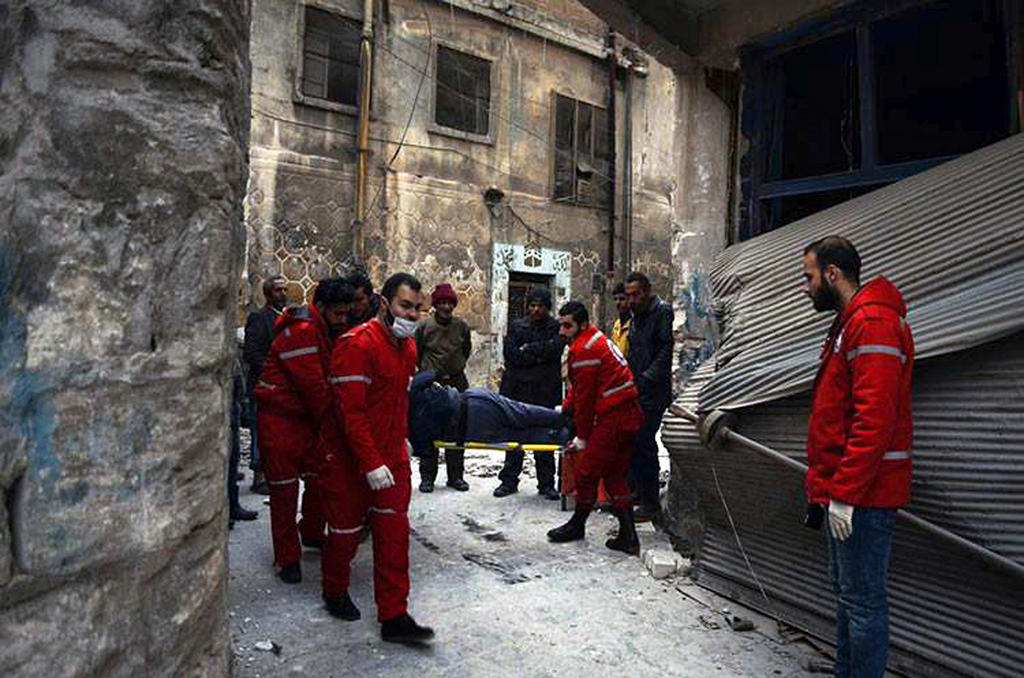
More
ICRC chief outlines humanitarian challenges for 2018 at WEF
“Humanitarian workers and local communities can have a positive effect on armed groups,” McQuinn points out.
“So criminalizing that engagement is counter-productive. Communities have to survive, they have to navigate these groups.”
But persuading everyone that talking to some of today’s armed groups is worthwhile has not always been easy. The ICRC’s contacts with the Taliban in Afghanistan were frowned on by some, the prospect of humanitarians negotiating with ISIS is also controversial.
But if the ICRC were not able to do that, who would? And who might fill the vacuum if that dialogue did not take place?
“The whole essence of the role of the ICRC as a guardian of the Geneva Conventions, is to talk to all parties to conflict and to engage with parties to the conflict so that they respect international humanitarian law,” ICRC president Peter Maurer told journalists in 2016.
“The fact that these laws are violated by parties of the conflict is not a reason for us not to talk … not to confer any legitimacy on belligerence but to do the utmost to ensure a minimum of humanity in conflict.”
A minimum of humanity. In other words: restraint.
You can follow Imogen Foulkes on twitter at @imogenfoulkes, and send her questions and suggestions for UN topics.

In compliance with the JTI standards
More: SWI swissinfo.ch certified by the Journalism Trust Initiative
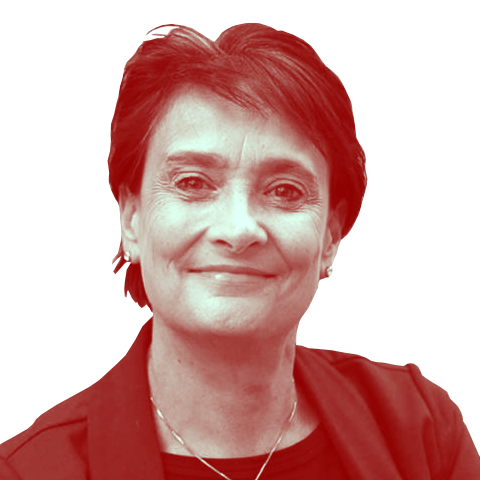
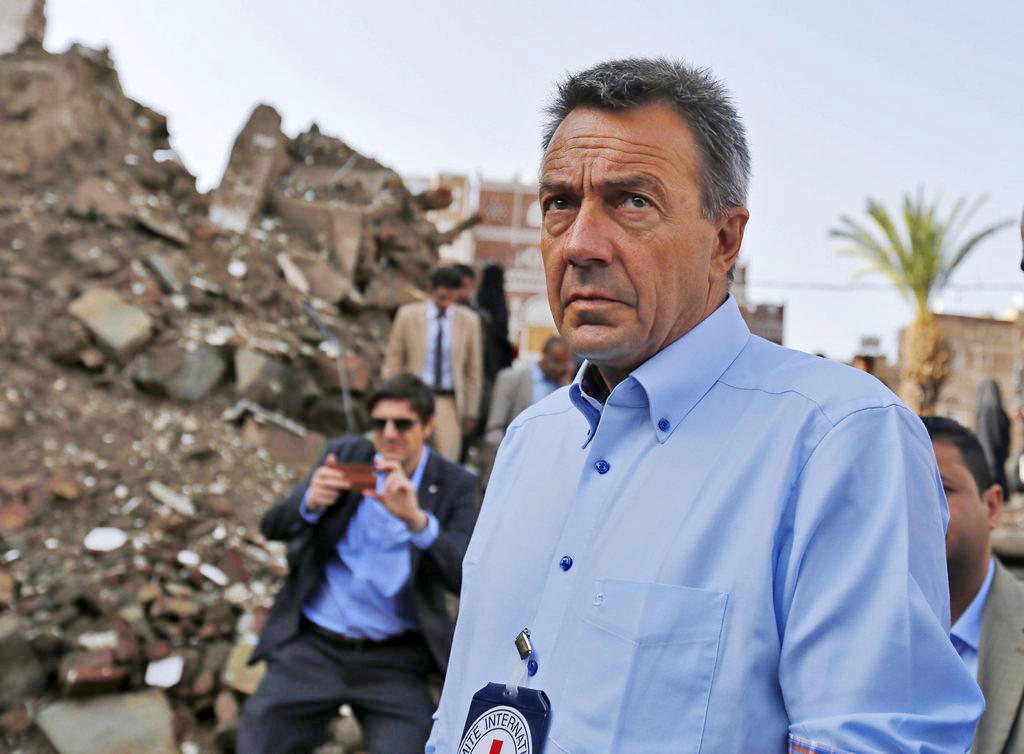
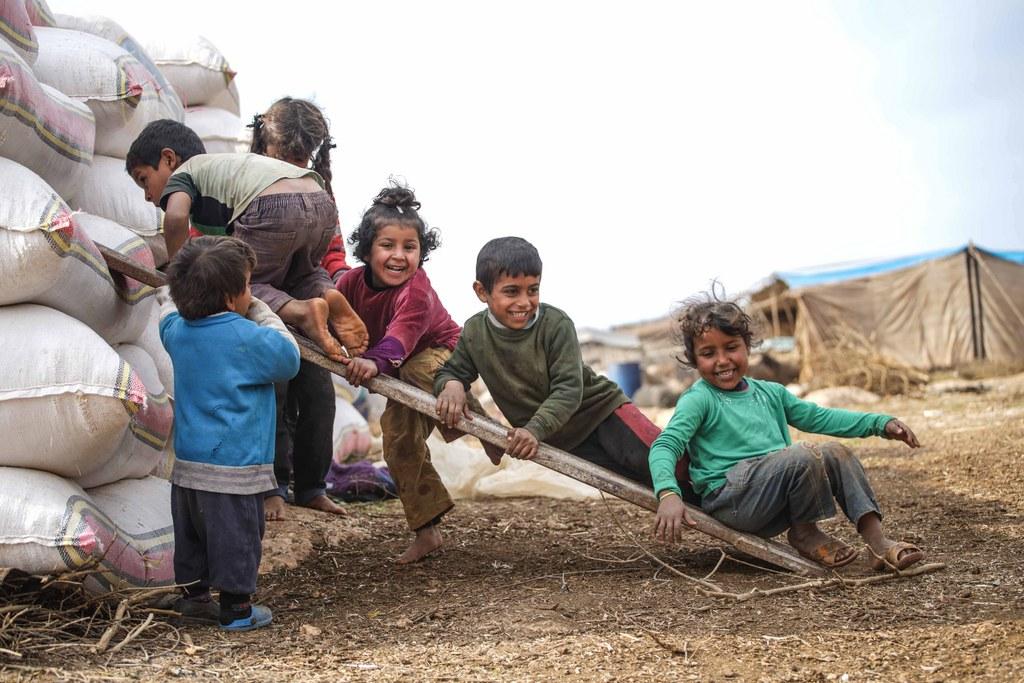
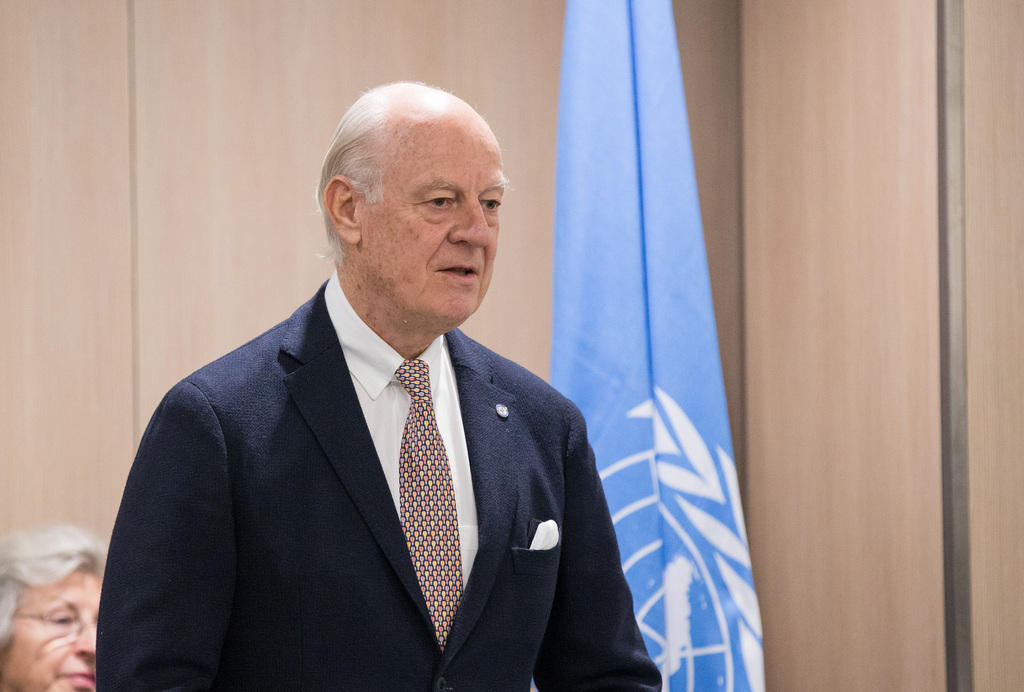

You can find an overview of ongoing debates with our journalists here. Please join us!
If you want to start a conversation about a topic raised in this article or want to report factual errors, email us at english@swissinfo.ch.